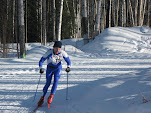I have been planning to write this up, following the Chena River Run the other week, and out of the blue had a conversation with a friend about this very topic at Murphy Dome. So now's a good time to discuss this topic with some more depth--not that I'm deep thinker or anything.
I've been posting some age graded results for select Flint Hills races for the past couple of years, knowing that the system isn't perfect.
What age grading comes down to is that the percentages coming out of the calculations are only as good as the world record for any particular age. And there's the rub, a world class runner (say low 27 10K, sub 2:10 marathon for men or sub 32 10K, under 2:30 for women) can make a very good living at running, enough to set themselves up for life if they have a decently long career and the manage things. World record holding runners are definitely set for life. Free drinks, meals, and babes forever for the men runners I hear. So the incentive is very high to work incredibly hard for many years at something most of them love to do anyway. Therefore, open standards are very tough.
Masters runners at the 40+ age group can also do well for themselves, but there are just a handful in the world who can make a decent living at it. And once they hit 45, 50 and beyond it's all for fun. Ed Whitlock does not command a six figure endorsement from NIKE and he doesn't get huge appearance fees at races and clinics, although he is a huge cult figure and roll model for age group enthusiasts.
The achievement levels aren't as high into the late 40s and beyond. Not as many top runners keep at it past 45, therfore it's simply easier to get a higher age group ranking the older you get. If you can keep healthy and motivated. (those are Big Ifs).
Let's take my 5K past and age group regression for example's sake. 5K is a distance that I've done through most of my career, and I've run at least one almost every year from age 20 on.
Back in the day when I was most fit and spry (say age 25 to 34), like now I'd often start the season with a 5K or two. Those races would usually be in the 16 min to 16:30 range, and by mid-late season with a lot of work I'd usually get into the 15:20s and 30s. Twice I broke 15:20, with PR of 15:13.
Fast forward to the past few years in this outpost of melting permafrost rife with climate change deniers. My training is less intense now, I just can't hammer the hard workouts as I used to. Or maybe I'm just getting wimpy. I also weigh 10-12 lbs more. Anyway, I'm still in early season shape and if I can keep healthy and consistent, those 5K times should drop another 20 or 30 seconds from my last two outings (17:51 and 17:42, respectively). However, those two early season times age grade to 15:13 and 15:08 for a 53 yr old male. Whoo hoo PRs! Not.
Even with the decline of age--which I think does occur (otherwise we'd see dozens of 50 yr olds knocking off 13:20s...umm yeah right!)--there is no way that my level of running (it's lame & I know) at Beat Beethoven and Chena River Run were anywhere near equivalent to the PR races I ran in 1985 and 1986 when I was still in my 20s. At best, in my own body and mind, I'm at the equivalent of 16:00 16:10 shape right now.
So age grading has given me a minute for nothing! ehh, or all the slackers who were better than me 20 or 30 years ago gave it up too early. Yar to that.
The point is, age grading tends to get easier the older you get. Now if some 50 year olds start running 14:05 or so for 5K, which could very well happen in the next decade seeing how 13:10s are dime a dozen in the open categories, then maybe we'll see a more accurate performance index.
All that said, despite the limitations, I do like to dabble with age grading because it does provide an objective measure for a particular age or age group. Just like how we, well the geeky amongst us, used to play around with performance tables back 20 or 30 years ago (hmmm if I can run a 2 mile in 9:40, what could I do for the marathon...or 15K) it's also a great motivator. So what's wrong with that?
You can run into trouble with age grading by comparing athletes of different age groups that are decades apart or cross gender--who's to say a 44 year old male runner who runs 16:00 for 5K is performing at less of a level than a 62 year old woman who does 22:00? I think in 12 or 15 years someone like former Olympic marathoners Colleen DeReuck or Linda Somers Smith will still be at it and they'll be running in the low or sub 18s!
I first came upon the concept of age grading in my early 40s. I took it with a grain of salt then. And still do now, even though I post up some of the leading times from some of our local races. This sort of explains why I don't post up performance equivalent times, and just last week I was thinking about how I "rank" the performances. Maybe I should keep the overall times in ascending order (not by age graded percentages as I have been doing), but put the percentage in parenthesis and let the reader discern a ranking on their own.
Meanwhile, my goal is to get a 90. That'd be 16:47 for 5K this year. Out there.


